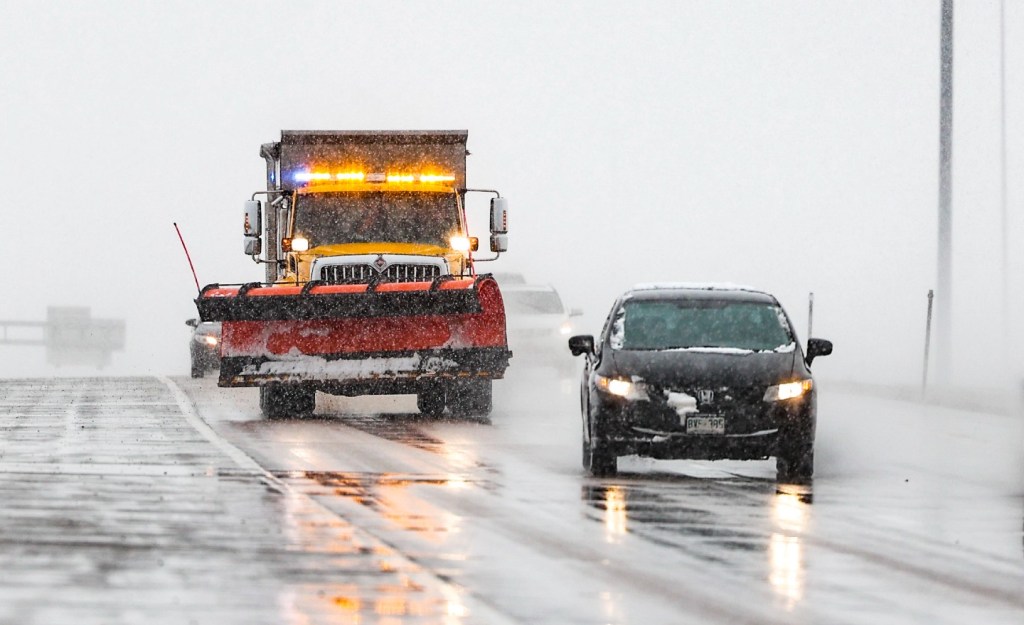Story at a glance
- Researchers estimate about 25 million metric tons of sodium chloride are used to deice roads during the winter season across the U.S.
- New research found that road salts can contaminate water supplies by mobilizing harmful chemicals like radon, mercury and lead.
- Researchers also flagged the urgent need to understand how freshwater organisms respond to these novel chemical cocktails.
One of the telltale signs of winter is road salt, it comes out as soon as the first few snowflakes hit the ground and is used heavily throughout the season, but researchers are raising the flag on how road salt may actually be doing more harm than good.

Getty
It’s known as deicing, when trucks travel across localities in much of the country and pour gallons of salt onto highways, sidewalks and just about any paved road, in order to prevent vehicle crashes when it snows. Researchers from The University of Toledo estimated that about 25 million metric tons of sodium chloride, similar to table salt, are dumped on roads across the country, with usage varying by state.
In some regions it varies from as much as 3 to 18 pounds of salt per square meter, which is about the size of a small kitchen table.
“The magnitude of the road salt contamination issue is substantial and requires immediate attention. Given that road deicers reduce car accidents by more than 78%, we worked to strike a careful balance between human safety and mitigating the negative environmental and health impacts triggered by dumping salt on our streets and highways to keep people safe and traffic moving,” said Bill Hintz, assistant professor of ecology at The University of Toledo and lead author of the research.
America is changing faster than ever! Add Changing America to your Facebook or Twitter feed to stay on top of the news.
In a study titled “Road Salts, Human Safety and the Rising Salinity of Our Fresh Waters,” researchers found that salts used to deice roads are triggering a massive increase in freshwater salinity, essentially contaminating local drinking water supplies. Though the U.S. Environmental Protection Agency (EPA) has set forth thresholds on how much salt is allowed to be polluted to keep water supplies safe, researchers say they aren’t enough.
Road salts can contaminate water supplies by mobilizing harmful chemicals like radon, mercury and lead. Researchers cited one example in Flint, Mich., where road salts were overused and that led to higher levels of corrosive chloride, causing lead to be released from water distribution pipes.
When examining different water supplies, researchers also found that local streams had salt concentration levels 20 to 30 times higher than the EPA chronic chloride threshold of 230 milligrams per liter.
Drinking water isn’t the only thing being contaminated; researchers also flagged the urgent need to understand how freshwater organisms respond to these novel chemical cocktails.
“Current EPA thresholds are clearly not enough. The impacts of deicing salts can be sublethal or lethal at current thresholds and recent research suggests that negative effects can occur at levels far below these thresholds,” said Hintz.
The solution to excessive use of road salt isn’t straightforward, with Hintz explaining a number of approaches to curb contamination. One solution would be to create covered storage facilities for the salt that include a concrete base and use anti-icing liquids before a winter storm hits to prevent ice from bonding to surfaces.
Hintz also recommended simply using more efficient snowplows that better conform to road surfaces, reducing the need for deicing salt altogether.
It also may come down to adjusting expectations for how localities respond to winter weather, with researchers saying that the public may have to, “consider that our expectations during the winter may come at the cost of contaminating freshwater ecosystems.”
READ MORE STORIES FROM CHANGING AMERICA
BETTY WHITE CAUSE OF DEATH CONFIRMED BY HER AGENT
AS OMICRON SURGES HERE’S WHAT THE LATEST SCIENCE SAYS ABOUT THE VARIANT
NASA USED RELIGIOUS EXPERTS TO PREDICT HOW HUMANS MAY REACT TO ALIENS
‘WHERE IS RON DESANTIS NOW?’ FLORIDA MAYOR SLAMS GOVERNOR AMID NEW SURGE
Copyright 2023 Nexstar Media Inc. All rights reserved. This material may not be published, broadcast, rewritten, or redistributed.